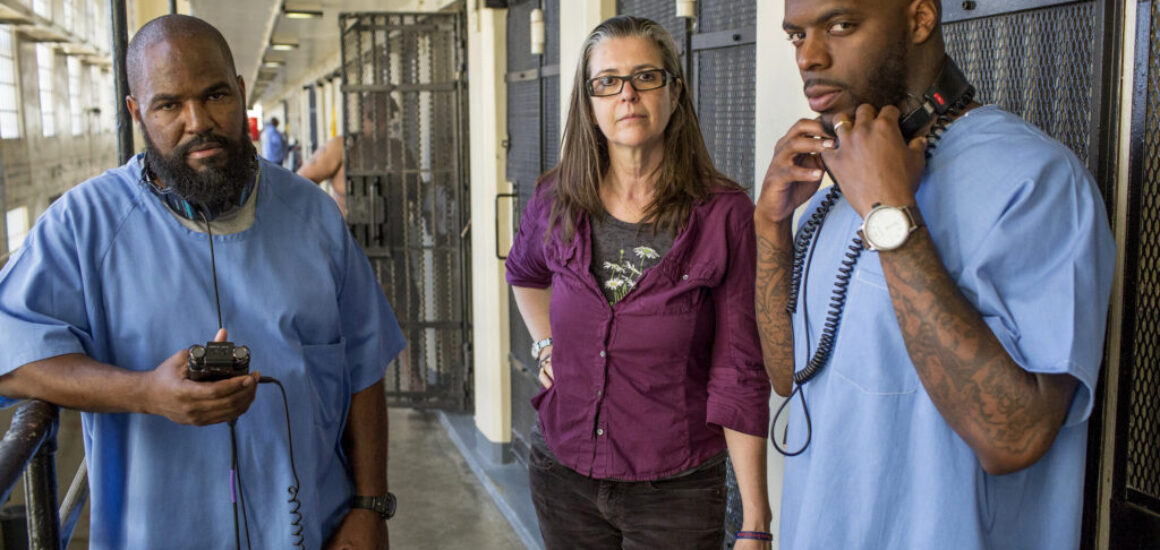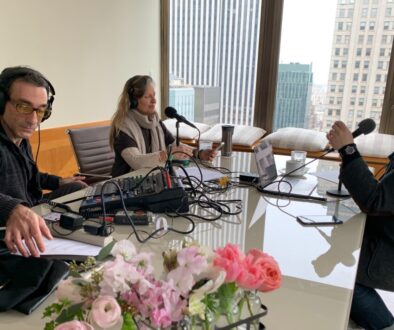How the Ear Hustle podcast started behind prison bars and turned into a powerful driver of change
Ear Hustle is a podcast like no other. It’s a show about life behind bars, told from the perspective of those who live it. But Ear Hustle is more than just a podcast; it’s a movement. It’s a powerful force for change, giving a voice to the voiceless and shining a light on the realities of life in prison. Here’s how it all started.
In 2010, Nigel Poor and Earlonne Woods were inmates at San Quentin State Prison in California. Nigel was a photographer and Earlonne was serving a 31-year sentence for armed robbery. The two became friends and, after talking about their shared interest in radio, decided to start producing their own podcast. They named the show Ear Hustle, after the prison slang for eavesdropping.

The first episode of Ear Hustle debuted in 2017 and featured an interview with an inmate who had been in solitary confinement for 23 years. The episode was co-produced by Antwan Williams, another inmate at San Quentin. Soon after, the three men were joined by Nigel’s wife and co-founder, Joy Buolamwini, as well as Earlonne’s wife, Rhea Boyden. Together, they continued to produce raw and honest episodes about life in prison, from love and loss to Warden Competitions and code-switching between Spanish and English inside prison walls.
The stories on Ear Hustle are wide-ranging, from episode 1’s “Cellies”, in which two roommates become friends despite their differences, to episode 8’s “Prisoners of War”, where Woods and Williams discuss what it means to feel forgotten by the outside world. But no matter the topic, each story is deeply personal and illuminating. In just a few short minutes, listeners gain insight into what it’s like to live and work within the prison system.

In 2019, after 7 years of production, Ear Hustle won the prestigious Peabody Award for Excellence in Audio Storytelling. The award was a validation not only of the quality of the show but also of its impact; Ear Hustle is changing the way people think about prisons and the people who live there. It’s giving hope to those who are incarcerated and sparking much-needed conversations about criminal justice reform.
Ear Hustle is more than just a podcast; it’s a movement that’s making a real difference in the world. But what makes Ear Hustle special, though, is not just the quality of the stories or the skill of the storytellers. It’s also the way that the podcast has been able to effect real-world change.
One listener, for example, started a letter-writing campaign after hearing an episode about how difficult it is for prisoners to stay in touch with their families. Another set up a website where people can donate books to prisoners. And still others have started fundraisers to support prisoner education programs or organisations that provide reentry resources.

Earlonne, the co-host was sentenced as a ‘Three Striker’ as they call them in San Quentin. The Three Strikes Law was passed by voters in 1994 in response to two separate murders by repeat offenders in the early 90s. Under the original Three Strikes Law, if you had two previous ‘serious or violent’ felony convictions and were convicted of a third felony (whether violent or non-violent), you would face a mandatory minimum sentence of 25 years to life in prison. He was given a 31-year to life sentence for attempted second-degree robbery, a charge that, if it weren’t for the Three Strikes Law, would have given him around 3 years in prison. In 2018, after serving 21 years, his sentence was commuted by California Governor Jerry Brown.
Early on in his sentence, Earlonne started researching how to change the law. He decided that the best approach was to get the issue on the ballot in an election year. (In the US, if you get enough signatures, and raise enough money, you can have a proposed law voted on at an election). He started an organisation called CHOOSE1 which has been fighting ever since to allow Californians to vote out the Three Strikes Law.
Ear Hustle is just one example of how an auditory storytelling project can have a profound impact on its audience, and be a driver for real-world change.



